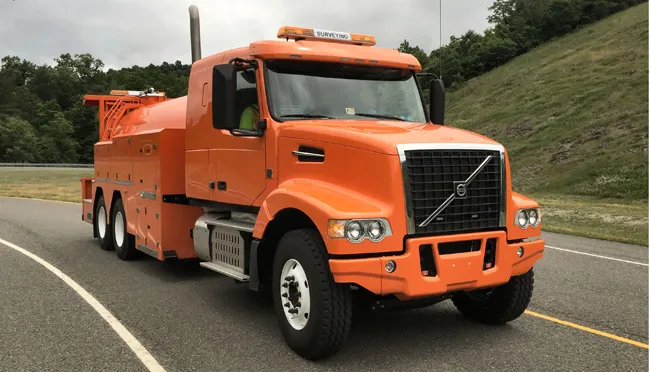
The announcement follows trials by one of WDM’s SCRIM road survey vehicles for the Federal Highways Administration over the past three years.
The machine has been operated by Virginia Tech - Virginia Polytechnic Institute and State University - and surveyed roads in five US states – Washington State (925km), Florida (1,400km), Indiana (1,400km), Texas (1,450km) plus North Carolina (885km).
The SCRIM machine is now being used to measure skid resistance on a further 10,940km of the Virginia network over the next three years.
SCRIM survey machines have been operating worldwide for 50 years in the UK and New Zealand. The test wheel on the SCRIM survey machine is in continuous contact with the road surface to determine the wet road skid resistance. In the past two decades it has helped reduce skid-related fatalities in New Zealand and the UK by up to 40%.
Chris Gardiner, president of WDM US, said the US machine, built on an American Volvo chassis, measures around horizontal curves where a large majority of fatal crashes happen in the US.
“If the US adopted continuous skid testing, along with a skid policy, and were able to achieve similar reductions, it could help save up to 8,000 lives and reduce economic costs by more than US$7 billion a year,” he said.








